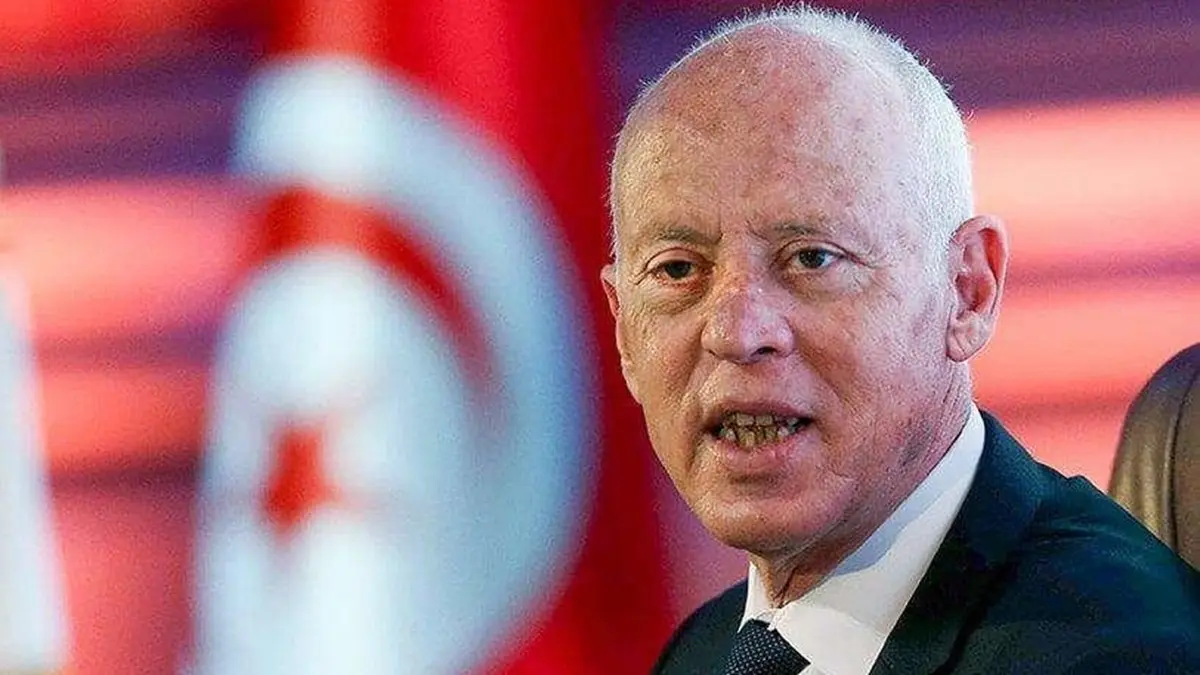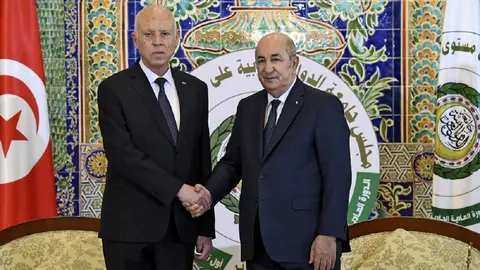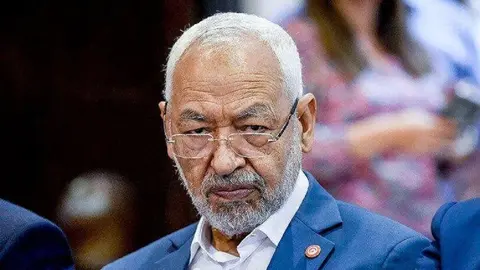Pro-Iranian drift of Tunisian president

The official communiqué states that Khaled Nouri will be the head of the Ministry of the Interior, seconded by a newly created Secretariat of State, specifically in charge of national security, a post to be filled by Sofiene Sadok. Nouri and Sadok are seen as ‘hard hawks’ in academia and human rights organisations, even more so than the previous interior minister, Kamel Feki, considered one of the closest men to President Saied.
Fears of a strong hardening of the regime have been fuelled by the wave of arrests in the last two weeks, which have affected well-known human rights defenders, lawyers and journalists. On Friday, coinciding with the president's return from Tehran, several thousand protesters had defied police forces to denounce the return to ‘a police state’, alluding to the 23-year dictatorship of Zine El-Abidine Ben Ali, overthrown in 2011 by the popular movement that gave rise to the so-called Arab Spring.
Kais Saied, who had a long personal meeting with Supreme Leader Ali Khamenei in Tehran, seems to have received an endorsement from the Iranian regime, all the more so since the Tunisian president has flatly rejected ‘unacceptable foreign interference’ by France, the United States and the European Union, expressing their deep concern over the massive increase in arrests and human rights violations.
In his contacts with other presidents, prime ministers and foreign ministers during his stay in Iran, the Tunisian head of state has had the opportunity to reiterate his anti-imperialist ideology and firm opposition to what he calls ‘foreign diktats’. He is thus reinforcing his growing hostility towards both his former French metropolis and the European Union, considering that both have failed to provide sufficient funding to avoid the near-bankruptcy Tunisia currently finds itself in.
In this regard, it is worth recalling Saied's relentless search for funding. Fréderic Bobin writes in Le Monde, where he recalls that Saied had refused to sign an agreement with the International Monetary Fund (IMF) for a loan of 1.8 billion euros because he did not accept the conditions demanded. The president then asked Saudi Arabia for financial aid, but the Saudi kingdom's strongman, Mohammed bin Salman, demanded that he accept the IMF loan as a precondition. After this new setback, Saied knocked on the door of Qatar, which demanded that before giving him the money he reach a compromise with the Islamist Ennahda party, which Saied has persecuted by imprisoning its main leaders, including its historic leader, Rachid Ghannouchi. And, finally, after trying with the United Arab Emirates, this time he has been vetoed by Algeria, which has been greatly angered by the deepening of Emirati-Moroccan relations, strengthened by the signing of the Abraham Accords with Israel.
Consequently, Kais Saied seems to have found understanding and support among the Iranian ayatollahs, who have urged him to strengthen his authoritarianism by forming an alliance with Algeria that is clearly anti-Western and also opposed to Morocco. This geopolitical sketch is said to have begun to take shape precisely at the beginning of March in Algiers, on the occasion of the summit of gas exporting countries, which Kais Saied is said to have attended as a guest of honour. There he held several talks with Ebrahim Raisi, the now deceased Iranian president. With him and other leaders of gas powers, Saied is said to have raised ‘the joint will to shake off colonialism so that liberated peoples can exercise full sovereignty over their natural resources’.
If this drift is confirmed, as all indications suggest, the situation in North Africa is set to heat up considerably.



